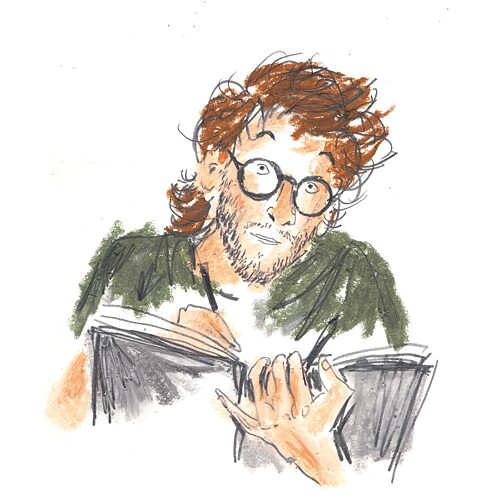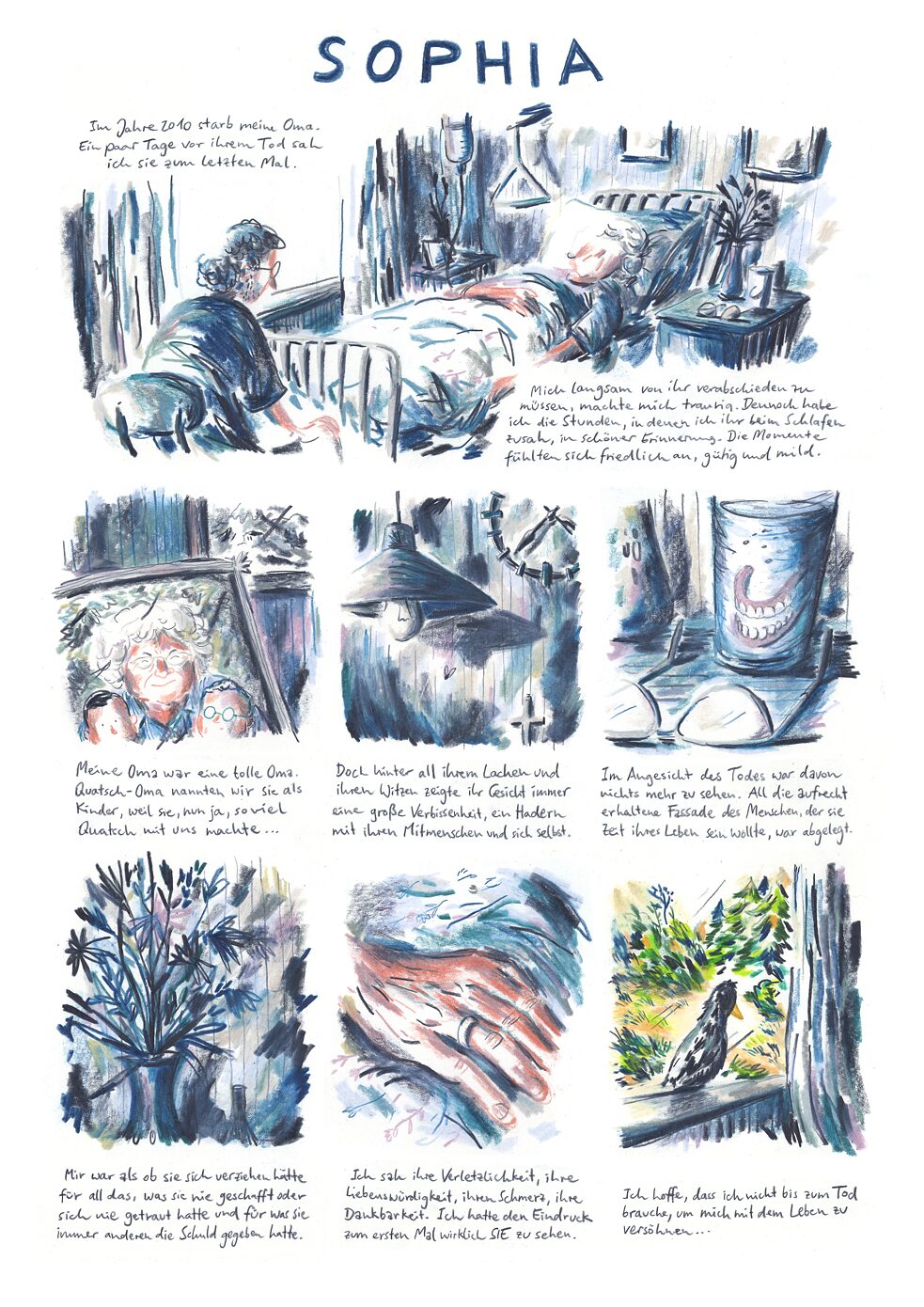The most difficult thing is probably to reconcile with yourself
Can you tell us about what you wanted to convey with this piece of artwork? What were some inspirations or ideas you wanted to consider when you were creating it?
I spent quite a while reflecting on what the word “reconciliation” means to me. In this process, several thoughts and stories came to my mind. But the topic of "self-reconciliation" touched me the most.
To reconcile with someone else, e.g. to settle an argument or forgive someone a mistake, is sometimes not easy. But the most difficult thing is probably to reconcile with yourself. After all, it is with oneself that one is least lenient.
We have high expectations of ourselves and if we notice that we cannot fulfill them and fail in our plans, we often wear ourselves out. We are our own greatest critic. At least that's how it is with me and many other people I know. And I also believe that it was the same with my grandparents.
I have so far experienced the death of three of my grandparents. In each of these cases, death was preceded by illness for some time; it was clear they were approaching the end of their lives.
And in all of them I could witness how they came to terms with themselves and reached calmness, at least to a certain degree. I noticed this most intensively with my grandmother Sophia, who is the subject of my story. I interpreted it as a kind of reconciliation with oneself and one’s life. It was very beautiful to observe this - but I also wonder whether it’s possible to engage in such a process earlier on, and not only as you near death.
Why is reconciliation as a subject important to you?
To settle an argument (with oneself or with another person) is one of the most redeeming and beautiful feelings I know. I like to reconcile, I can admit my own mistakes, I can forgive others their mistakes. But dealing with conflicts, talking about them and finding solutions is also something that I sometimes have trouble with. But I do my best and hope to become better and better.
However, I also observe many people who insist on their point of view just to avoid admitting their own shortcomings. Or who stay forever resentful. Or who avoid communication and discussion about a point of contention. This causes a lot of the aggression we experience in this world – both on a large and on a small scale.
What was the creative process like in creating this artwork? (Do you map it out in a plan beforehand, do you work on text first and then illustration or vice versa? You can also talk about the medium or methods you use in creating the work.)
Normally I am someone who leaves a lot of room for the unplanned and for improvisation in his work. Most of the time, picture and text are created hand in hand and many things change in the "making" ; I rarely do preliminary drawings. It was different with this story. Here, I first wrote the text and then thought about how I could arrange it on the page and about which pictures would capture its mood properly. I made some sketches before I started with the final drawings. So I planned everything well. I drew with crayon.
Is there anything else you'd like to add?
It's been a long time since I last drew a classic comic. It was fun doing it again.
About the Autor
Sebastian Loerscher, born in Paris in 1985 and raised near Munich, is a Berlin-based graphic artist and author. He studied Visual Communication at the University of Applied Sciences Würzburg and at the Berlin-Weissensee School of Art. His graphic novels have received numerous awards (including the Sondermann Prize and the Stiftung Buchkunst Prize) and are in the catalogues of various publishers in Germany and France.
Loerscher’s most recent work focuses particularly on the medium of illustrated features. He travels to faraway lands with pencils and sketchbook and captures his impressions in drawings, texts and comic strips done in situ. He tells about his adventures in his books and in readings on Germany’s stages. His latest projects took him to Bangalore in southern India, Haiti in the Caribbean, the wilds of Austria and finally, Nigeria.
For his clients he works in the fields of illustration and graphic recording and conducts all sorts of workshops on drawing and storytelling.
TO LEARN MORE ABOUT LOERSCHER’S WORK
you can follow him on Instagram or visit his website:

